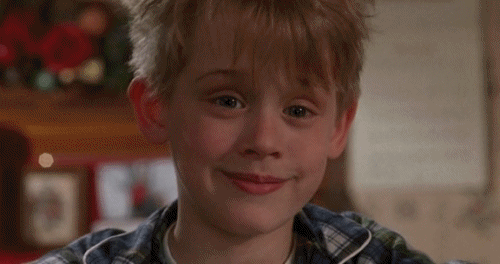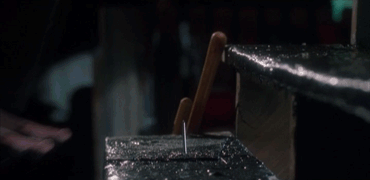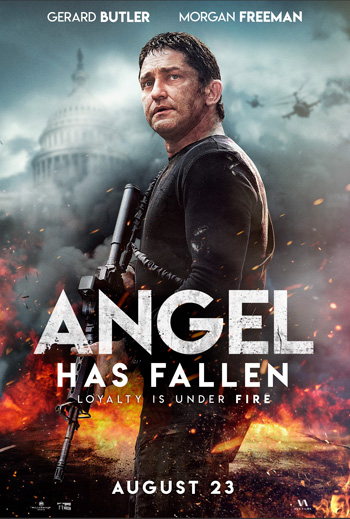When I was little I absolutely loved watching Home Alone. Seeing an eight year old living by himself, defending his house against burglars and sledding down stairs was the type of person I could look up to. For me, and I'm sure for other children, he was a hero. I even made a 'Home Alone remake' music video back in college. And yes I was Kevin.
However as I've gotten older each viewing has slightly changed my thinking. No longer do I see a small child defending his home in slapstick style against two bungling burglars. Now all I see is the early signs of anti social behavior and sadism. Do you ever watch the 'nail-in-the-foot' scene and just look away because it looks too real? Or wince in pain when Marv falls down the stairs on his back and knocks all the wind out of himself? I do, every time. I've stood on sharp, pointy objects. I've fallen down metal steps in a block of flats on my back and had the wind knocked out of me. THEY FUCKING HURT. And when you REALLY look at it, Kevin is a spoilt rich white kid living it up in the suburbs, taking his aggression out on two lower class men who are stuck in a life of crime due to the fact that one of them is illiterate and one "never made it past the sixth grade". So watching this boy, this sadistic, smiling, happy boy taking pleasure in their pain has massively changed my perspective on the film. And it's why I like it so damn much.

An example of a sadist child.
Kevin starts off the film as the forgotten child. He struggles to be heard and respected by his huge family, and his attempts to be heard end up in him being a little jerk.

Obviously, as any one has done when they were an angry child (or still do) Kevin wishes for his family to disappear. He gets his wish after the family "accidentally" leave him behind while they get into mini vans, drive all the way to the airport, get onto the plane, sit down for ages, get some drinks, then realise after take off that they didn't bring Kevin with them. Nice job mum and dad. He does what any child would do when left at home alone; he messes with his brothers' stuff, he eats all the ice cream he wants, he sleds down the stairs and he terrorises a poor pizza delivery guy. But then things turn bad, and this is when we start to see the vicious, twisted side of Kevin. Two burglars, Harry and Marv, target his house for a burglary. Rather than calling the police like a normal child, Kevin sets up a series of elaborate, fatal traps which include shards of glass, a hot iron, a blow torch and THE HIDDEN NAIL.


Home Alone could easily act as a prequel to a horror film. After years of childhood neglect and abandonment issues and with no more feelings of empathy, Kevin McCallister turns into a monster serial killer. Much like the story of Michael Myers in the Halloween remake (2007), could a Home Alone horror sequel be on the cards? Probably not. But imagine it. Not hard to do now is it?
Despite all of this, Home Alone is one of those treasured memories I have from growing up. We would watch this every Christmas and I still watch it every year. It's filled with Christmas merriment, music, snow and sentimentalism. For me, the film represents a childhood nostalgia that anyone born after the late 90's will never appreciate. It represents a bygone age where this film wouldn't make sense or be accepted by film audiences now. Can you imagine if Home Alone was released now? A film where a child is left home alone in this age where mass communication controls our lives? Kevin wouldn't have been left alone in this day and age. There's probably an app to make sure you don't leave children behind, and Kevin would just live Tweet his predicament and now the film wouldn't make sense. And imagine a film now where two grown men chase after a little boy and hang him on a coat hook, or have an adult character call a child a 'jerk'. People would be outraged. People would say it promotes kidnapping or something stupid. You know how overboard people are nowadays.
When you get down to the soul of Home Alone, despite the burglars and the wanting family to disappear bit, it's incredibly innocent. We experience the majority of the film from a child's perspective and it takes on an almost cartoonesque feel. All of Kevin's family are mean, there's not a nice one in the bunch and they show it after the pizza and Pepsi ordeal as the camera pans across the room and they are all looking at him with a look that says, "We hate you". But we empathise with Kevin because we've all been there. We've all been the younger sibling or cousin who's made out to be a little bastard. Unless you were a little bastard anyway, then you probably deserved it. You bastard. The worst of them is Buzz, Kevin's older brother. He constantly picks on Kevin, gets him in trouble and gets away with it every time. He's a massive jock with a pet tarantula which is a power symbol in itself, and he is the dictionary definition of 'massive twat'. It's in there, go and look. Then there's cousin Fuller who purposefully pisses the bed when he's sharing with Kevin, which is fucking grim. That is horrible. But the absolute worst of the lot is Uncle Frank. How on Earth does he get invited to family get togethers? He is a massive, MASSIVE twat and because he's an adult Kevin can't win. So all of these mean spirited family members contrasted with Kevin actually cast him in a good light; he is the one who is in danger and the one who gains our sympathy. And he seems like a cool little kid. The imbecile antagonists take tremendous physical torture and are pantomime baddies who provide brilliant physical and verbal comedy.

Home Alone is just an aesetically perfect Christmas film. Even though he starts off as selfish, Kevin learns about the value of family and becomes generous. Although in Home Alone 2 he is more charitable and helps the pigeon lady and prevents the theft of charity funds, in the first film he still helps Old Man Marley with his sad family situation. And we can't forget John Candy's character who represents season goodwill by driving Mrs. McCallister home so she can be reunited with her son for Christmas. And family is probably the most vital part of any Christmas film. The ultimate message at the centre of Home Alone is one of family, and in spite of everything that has happened, the need is to be with loved ones on Christmas. Come Christmas morning not only the McCallister family have been reunited, but Old Man Marley is reunited with his estranged son. Families can cause trouble and heartache but Christmas just isn't the same without them. And that feeling is reaffirmed every time I sit down to watch the film. Even if I don't watch it with my family, the memories I have always come flooding back and I am overcome with childhood nostalgia.





